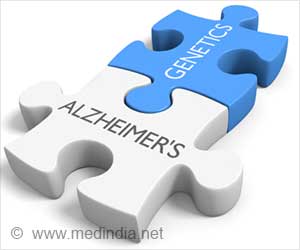- Skin diseases are linked to an increased risk of cardiovascular disease and other health problems caused by chronic inflammation in the body
- Skin health is a public health issue, with the rising prevalence of skin disorders among both adults and children
- Stress is linked to skin conditions and aging, and potential therapeutics have been proposed to inhibit cytokine release and other downstream effects
It's not as simple as inflammation in one place of the body causing inflammatory disease in another—however, more and more data indicates a greater link than people realized.
A 2019 study found a correlation between skin malfunctions and a variety of health problems caused by chronic inflammation.
"We know inflammation does bad things to our body. When our skin comes into contact with substances that it does not want to, its reaction is inflammation. And sometimes you can't see it; it's microscopic inflammation. But you can feel it: The skin is tight, or we feel oily and have blemishes," says Erin Yet Tjam, Ph.D., known as The Beauty Obsessed Scientist and author of Skin Sobering: 99% of products are harmful to your skin. "If we don't stop that acute inflammation, the worst thing happens, and it becomes chronic. Inflammation goes around the body. When you have inflamed skin, your body doesn't feel good."
Why we should all care more about skin inflammation
She describes skin health as a ‘public health issue.’ "That is the most common reason for people to visit doctors in the United States. The sheer number of people with skin problems makes it an epidemic. The sheer number of problems with our skin makes it an epidemic."She cites the rising prevalence of acne, as well as adult acne, as examples. It is now considered a ‘universal’ condition in Western nations, affecting 79% to 95% of the adolescent population. It doesn't stop with teenagers. According to one poll, adult acne in women has increased by 10% in the last ten years.
Skin Disorders Among Children
Children's skin disorders are also on the rise. According to one survey, 90% of school-aged youngsters had at least one skin ailment (with a wide range of severity, I should add). Experts, not just Tjam, attribute this to the rising incidence of childhood allergies: in the last decade, the number of children ‘at risk’ for a severe reaction grew by 104%.Her unconventional solution? "And the remedy is so simple: Quit fussing so much over our skin with all these creams and let it heal." It's the book's primary argument: if you let it, skin can take care of itself, and current formulations impede its ability to do so.
What is the Link Between Skin Inflammation and Overall Inflammation?
There is a relationship between stress and skin conditions, with recent research demonstrating that the skin actively participates in the stress response through local signaling pathways and cells, as well as feedback mechanisms and crosstalk between the brain and skin (1✔ ✔Trusted SourceBrain-skin connection: stress, inflammation and skin aging
Go to source).
It can also be noted the negative effects of chronic stress on skin aging and various skin diseases.
While there are currently no proven medical treatments for stress-induced or exacerbated skin conditions, several potential therapeutics have been proposed, including compounds that inhibit cytokine release from mast cells, dietary supplements combining active flavonoids with proteoglycans, and specific receptor antagonists.
Future research should focus on further investigating the HPA axis, proinflammatory hormones and cytokines, and their downstream effectors to discover novel therapeutics for skin diseases and anti-aging treatments.
Reference:
- Brain-skin connection: stress, inflammation and skin aging - (https://pubmed.ncbi.nlm.nih.gov/24853682/)
Source-Medindia















